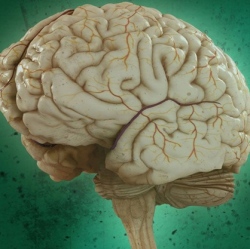
The latest evidence that speaking more than one language is a very good thing for our brains comes from a study finding dementia develops years later in bilingual people than in people who speak just one language.
The study, conducted in India and published Wednesday in the journal Neurology, is not the first to reach this conclusion. But it is the largest and comes with an intriguing new detail: The finding held up even in illiterate people — meaning that the possible effect is not explained by formal education.
Instead, the researchers say, there’s something special about switching from one language to another in the course of routine communication — something that helps explain why bilingual people in the study developed dementia five years later than other people did. When illiterate people were compared with other illiterate people, those who could speak more than one language developed dementia six years later.
"We know from other studies that mental activity has a certain protective effect," says co-author Thomas Bak, a neurologist at the University of Edinburgh, Scotland. "Bilingualism combines a lot of different mental activities. You have to switch sounds, concepts, grammatical structures, cultural concepts. It stimulates your brain all the time."
